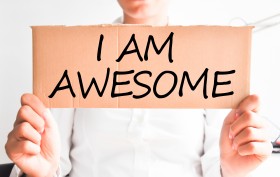While certain companies get very creative with their interview questions, it’s still a good bet to prepare for the most common questions so you can knock those out of the park when they are asked.
When I give mock interviews, I notice that many people struggle to answer, “What are your strengths and weaknesses?” It’s likely because outside of job interviews, most people aren’t running around bragging about what they’re great at or broadcasting what’s not going well.
Instead of wracking your brain for strengths and weaknesses, I recommend using some tools to guide you through the process. Reflecting on your past experiences and how you approach your work will uncover strengths you may have never put into words before.
 Discovering Your Strengths and Weaknesses
Discovering Your Strengths and Weaknesses
PwC’s Your Personal Brand Workbook
Don’t be intimidated by the length of this workbook, it is broken up into sections so you can focus on what’s important to you. It helps you pinpoint your weaknesses, and better yet, gives you tips on how you can mitigate them.
This workbook has great questions to get you thinking about your strengths and when you’ve used them in the past. Once you’ve figured out your dragon-slaying story, you will be able to write more effective cover letters and tell impactful stories during interviews.
This quiz from Levo is quick and easy, because it’s all about you! At the end of the quiz you will be given your top 8 strengths that can follow into any of the following categories: analytic, innovative, relational, and procedural. You will get descriptions of how each strength can help you succeed, and the weaknesses or blind-spots related to that strength.
When you share strengths with an employer, focus on ones that are genuine and relevant to the job. The best strengths will also be accompanied by a story demonstrating that particular strength, and how it ended in a positive result.
The Trickier Part
Now that you have your strengths covered, it’s on to the tricky part–weaknesses. Some people struggle to identify a weakness, so I encourage you to change the words a bit and think about your areas of improvement. Almost everyone can identify an area where they’d like to improve, and this can be the “weakness” that you share.
One important thing to be aware of: you never want to share a weakness that would severely impact your ability to do your job. For example, if you are going for a role in project management, it’s probably not wise to share that you’re a severe procrastinator. No matter what weakness you share, one of the best things you can do is to follow-up immediately with an example of how you’re working on improving it.
“One of my weaknesses is public speaking. While I’m very comfortable talking with people one-on-one, I tend to get nervous talking to a large group. I decided the best way to deal with it was to force myself to present more, so I signed up for a public speaking course. I learned a lot of helpful tips and tricks to calm my nerves, and by the end of the course I started looking forward to the opportunity to present.”
I’ve seen other advice that recommends you share a weakness that is actually more of a strength–like being a perfectionist. While this could work as well, I caution against it, since I think it can be seen as a cop-out. Sharing a weakness that is more genuine shows self-awareness and integrity–the traits employers are trying to uncover by asking you that question.
Do you have any other tips for answering the strengths and weaknesses question? Please let us know by leaving your comments here!


